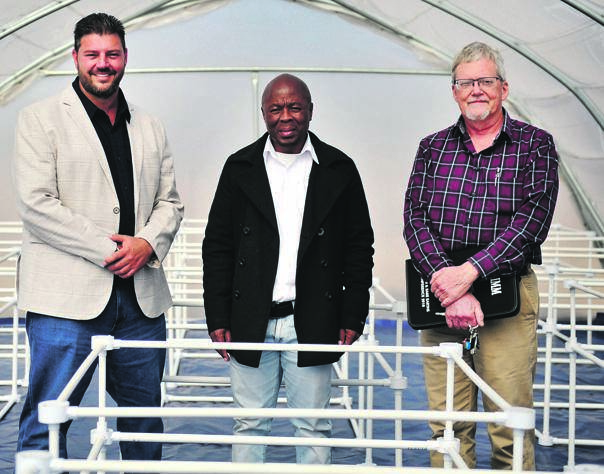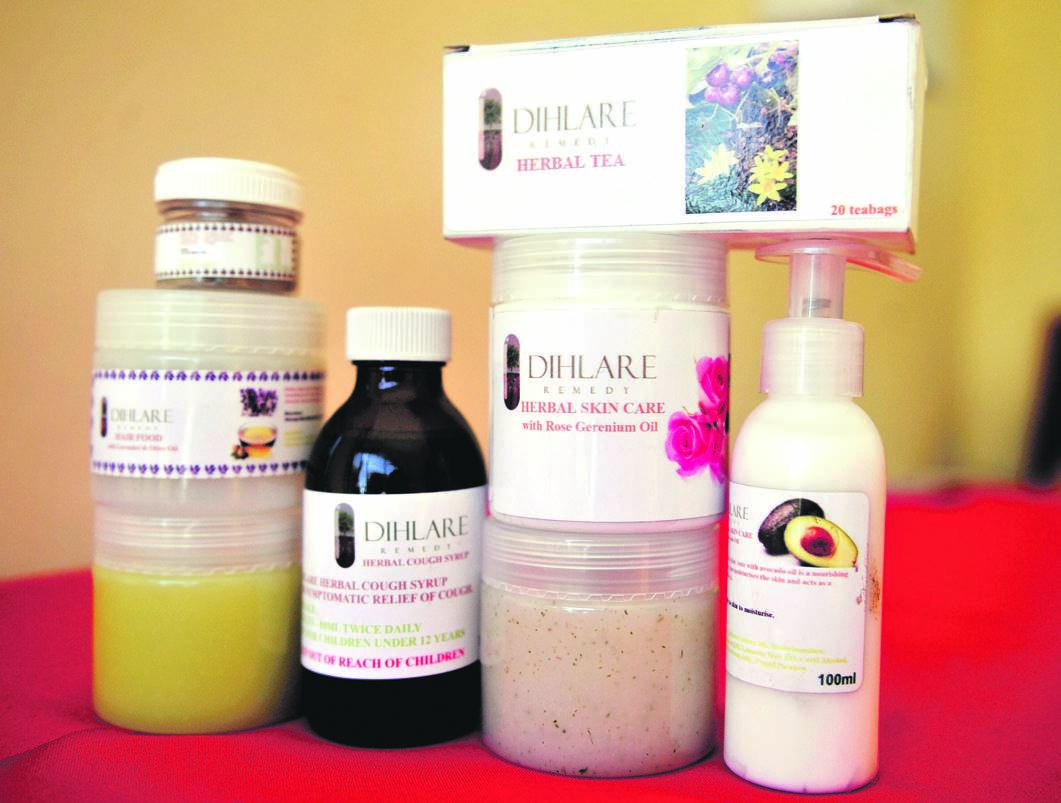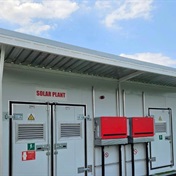
Invested parties are exploring target-specific use of cannabis to treat illnesses, clean the environment and bridge the medicines gap.
It has a bad reputation, but has been used for centuries in traditional medicine and it could bridge the gap between traditional medicine, traditional healers and Western medicine.
Cannabis, more specifically its hemp strain, could bring relief to communities living near mine dumps because it can store toxins, such as uranium, in its leaves.
A cannabis and hemp research and development project, a partnership between the Vaal University of Technology (VUT) and private firm Cannabisiness, will be looking into the uses of the “very versatile” plant.
The university’s subsidiary, Dihlare Remedy Institute of Traditional Medicine and Traditional Knowledge, based at its Sebokeng campus, has been working with local traditional healers to develop safe and effective medicines that were used in African communities.
READ: We have a choice to either join the emerging cannabis economy or stand by and watch
Cannabisiness, a cannabis and hemp research and development company, recently signed a five-year research agreement with the institution to study the medicinal properties of cannabis as well as the phytoremediation properties of hemp. Phytoremediation refers to technologies using plants to clean up contaminated soil, air and water.
The partnership follows the department of health’s update to the Medicines and Related Substances Act, removing the stringent restrictions on cannabidiol (CBD) – one of the two main components of the cannabis plant.
Former health minister Aaron Motsoaledi deregulated CBD-containing products with a maximum dose of 20mg, deeming them safe to use for minor symptoms.
This, and last September’s Constitutional Court ruling that cannabis can be used at home, has led to the growth of not only the commercial development of CBD products, but research projects as well.
READ: Tokers celebrate ConCourt's dagga ruling
Cannabisiness project manager Hennie Venter said his cannabis research journey was sparked by personal experiences.
“My wife was diagnosed with rheumatoid arthritis about five years ago and none of the conventional medicines worked for her. She was extremely sick and bedridden for eight months. We went through a clinical trial, but the medication in the trial had adverse effects and she contracted tuberculosis and spent a further two weeks in hospital,” he said.
“I started getting desperate, seeing my wife in hospital and going backwards and that none of these medicines worked for her.”
Then one of his friends was paralysed in a car accident and suffered from nerve pain, for which he used cannabis.
“He asked if I had tried cannabis oil and I hadn’t, but was ready to try anything,” Venter said.
Venter and his wife tried the concoction his friend made, mixing CBD extract with an olive oil carrier. He says that within a week they were seeing “great success” and a reduction in her inflammation and pain.
But it wasn’t perfect. One batch would yield success but another wouldn’t and they didn’t understand why.
“I thought I needed to look into this so I started contacting universities and heard of Fanyana Mtunzi, who was doing traditional medicines research,” he said.
Mtunzi, a professor at VUT, shared Venter’s interest in CBD research, particularly for its medicinal use, and they acquired a permit to conduct the research from the SA Health Products Regulatory Authority, as well as collaborative assistance from the Industrial Development Corporation.
Venter said their aim was to create “target-specific cannabis medication” to treat specific ailments.
“When you look at medicines, you want a specific profile of it to treat a certain ailment. But with this plant you have more than 1 000 different chemical compounds. We’ve only identified 580 of those: 140 are cannabinoids, with 40 being successfully mapped and we want to find out what those other chemicals are,” he said.
“We cannot expect to treat ourselves effectively by ‘throwing’ or ‘carpet-bombing’ all these chemical compounds at our endocannabinoid system and hoping that the desired compound might hit the right target, while wondering if the correct dosage is administered. We need to be more accurate and target-specific in cannabinoid treatments and medicines.”
READ: Evidence doesn’t support the positive opinions favouring medicinal dagga
Professor Martha Pinkoane, head of health sciences at VUT and the project’s clinical manager, spearheaded Dihlare’s programme in training traditional healers to use simple biomedical procedures such as blood pressure checks to observe their patients’ health and to know when to refer them to a clinic, doctor or hospital.
“It is not easy. We have engaged and worked with 400 healers, but have only been able to get through to 120,” she said.
“They bring their medicine to us and professor Mtunzi takes them in for toxicology tests to identify what works and what doesn’t. It becomes a problem when you come back and tell them that some of their medicine is toxic and can’t be used. And because you’re a researcher and a biomedical person, you are seen as a sceptic and as trying to bring down their business,” she said.
Part of their work at Dihlare involves commercialising the products that the healers bring.
Mtunzi said so far they had seven product prototypes, ranging from a hair ointment using CBD extract and avocado oil to capsules they made from a liquid immune-boosting concoction from a traditional healer.
“We sign a memorandum of understanding with the healers and sign contracts on what we will do with their products and how they benefit,” he said.
“They come with the raw material and say to us: ‘We have this that we use for a headache.’ We know for headache treatment we expect plants to have certain properties and we check if it is not toxic.”
USING HEMP TO CLEAN UP THE ENVIRONMENT
Five hectares of campus property will be used to grow both cannabis and hemp from the beginning of next month.
The phytoremediation project’s technical manager Willie Augustyn, who previously worked at the Nuclear Energy Corporation of SA, said hemp would help in the remediation of uranium, a heavy metal mining by-product in many communities near old gold mines.
Research, he said, has shown that the hemp plant is a “hyperaccumulator” that can store high levels of contaminants in its leaves.
The contaminated plant could then be repurposed in the production of other materials such as car engine parts.
Venter said: “The research results are of extreme importance to the communities surrounding the ArcelorMittal Vanderbijlpark steel mill, which is one of the major industrial polluters in the Vaal Triangle.
“The aim of the research is not to blame any companies for the pollution levels in the soils, but rather to work in collaboration with these companies and government departments in creating greener remediation processes that not only clean up years of industrial pollution but restore safe living conditions to our communities,” he said.
“It will also help with much-needed employment for our local and national communities.”
 |
| ||||||||||||
| |||||||||||||




 Publications
Publications
 Partners
Partners









